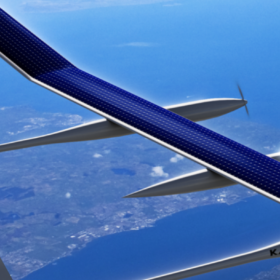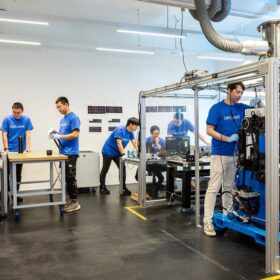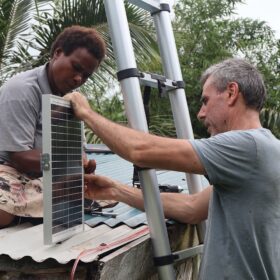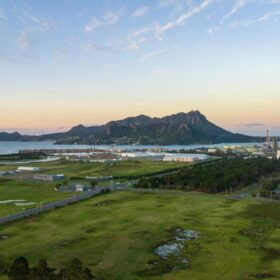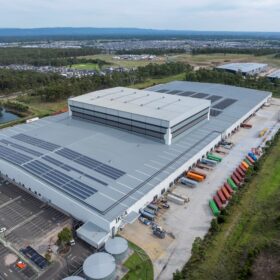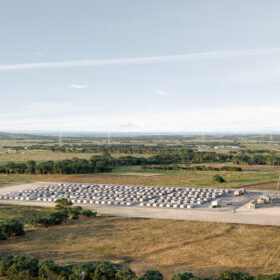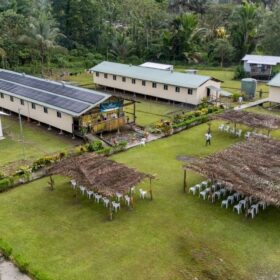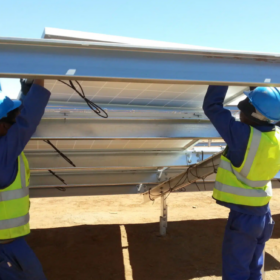Li-S Energy inks deal to keep solar powered aircraft in flight for months
Australian battery tech company Li-S Energy has inked a stratospheric deal with New Zealand uncrewed aircraft developer Kea Aerospace, to incorporate its lightweight tech into the solar powered aircraft and extend flighttime from a day to many months.
UNSW attracts research funds to help commercialise clean tech developments
University of New South Wales’ researchers using artificial intelligence to aid analysis of solar cell degradation, developing innovative green ammonia production and an end-of-life electric vehicle battery solution are recipients of commercialisation grants.
PowerWells helps Vanuatu women take charge of off-grid solar power systems
Brisbane e-waste to solar technology company PowerWells has supported a collaboration helping women in a remote Vanuatu village to end their energy poverty, with the ongoing installation of solar systems on 115 dwellings.
Meridian to proceed with $206 million Ruakākā Solar Farm
Construction of New Zealand-headquartered Meridian Energy’s 120 MW Ruakākā Solar Farm is set to begin in August 2025, following the project reaching a final $206 million investment decision.
IKEA Australia Sydney warehouse furnished with hybrid solar and battery system
IKEA Australia has partnered with Smart Commercial Solar to install a $2.9 million, 2,034 kW rooftop solar and battery energy storage system on a western Sydney distribution centre.
Equis reaches financial close and starts build of 500 MWh Calala BESS
Melbourne-headquartered infrastructure developer Equis Australia has reached financial close and commenced construction on the 250 MW / 500 MWh Calala battery energy storage system, and an offtake agreement with Smartest Energy.
$70 million fund opens to innovate heavy industry decarbonisation
Only innovators need apply: ARENA opens second round of industrial transformation stream funding offering $70 million to support technology development to help industry decarbonise.
Remote Papua New Guinea Kokoda Trail school installs solar powered mini-grid
A remote high school in Papua New Guinea has installed a solar powered mini-grid to classrooms and schoolground infrastructure such as a solar water pump and solar powered irrigation system, with the support of an Australian government off-grid renewable energy in the Pacific program.
Hydrogen Headstart to break ground with Western Australia project
Danish renewable energy investment firm Copenhagen Infrastructure Partners has been successful in the federal government’s first Hydrogen Headstart round for its Murchison green hydrogen project in Western Australia.
Newcastle Coal to power port facility with solar
Renewables developer Lightsource BP is pushing ahead with the construction of the 450 MW Goulburn River Solar Farm in the New South Wales Upper Hunter region after striking a long-term offtake agreement with the operators of one of Australia’s major coal export terminals.
